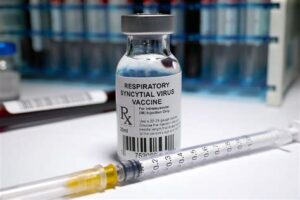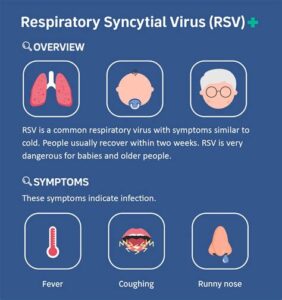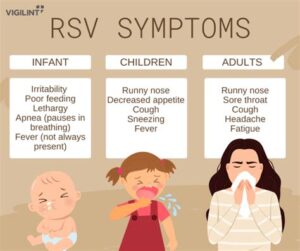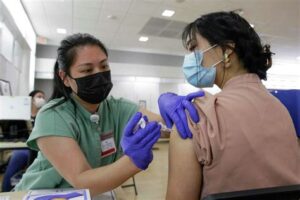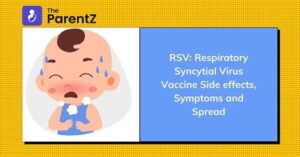Explore RSV vaccine contraindications, common risks, assessment techniques, and management strategies in clinical practice for optimal vaccination outcomes.As respiratory syncytial virus (RSV) continues to pose a significant threat to vulnerable populations, the development of an effective vaccine has brought hope in combating this viral infection. However, understanding RSV vaccine contraindications is essential to ensure safety and efficacy. Contraindications are specific conditions that may prevent individuals from receiving the vaccine, making it crucial for healthcare providers and patients alike to be well-informed. In this blog post, we will delve into the various facets of RSV vaccine contraindications, including common contraindications, associated risk factors, and the importance of thorough assessments before vaccination. Additionally, we’ll explore strategies for managing these contraindications in clinical practice, providing a comprehensive guide for navigating the complexities of RSV vaccination. Join us as we unravel the critical information to ensure safe and effective immunization against RSV.
Understanding RSV Vaccine Contraindications
Respiratory Syncytial Virus (RSV) is a significant cause of respiratory illness in infants and young children. Vaccination against RSV is a vital preventive measure. However, it is crucial to understand the contraindications associated with the RSV vaccine to ensure patient safety and optimal outcomes.
Contraindications refer to specific situations or conditions in which administering a vaccine may pose a higher risk than benefit. In the case of the RSV vaccine, some common contraindications include severe allergic reactions to any component of the vaccine, a history of anaphylaxis, or moderate to severe illness at the time of vaccination. It is essential for healthcare providers to perform a thorough assessment of each patient’s medical history prior to administration.
Furthermore, potential contraindications may vary based on individual health profiles. For instance, immunocompromised patients should be carefully evaluated since their response to the vaccine may differ from that of healthy individuals. It is the responsibility of healthcare professionals to ensure that any existing contraindications are identified and addressed before the vaccination process.
Common Contraindications to RSV Vaccine
Vaccination is an essential tool in preventing respiratory syncytial virus (RSV) infections, particularly in vulnerable populations such as infants and the elderly. However, it’s critical to identify the common contraindications to the RSV vaccine to ensure patient safety and effectiveness of the vaccination campaign. Understanding these contraindications helps healthcare providers make informed decisions when recommending the RSV vaccine.
- Severe allergic reactions to any component of the vaccine: Patients with a history of anaphylaxis to RSV vaccine ingredients should avoid vaccination.
- Moderate to severe acute illness: Those suffering from a significant illness may need to postpone their vaccination until they have fully recovered.
- Immunocompromised individuals: Certain patients with weakened immune systems may not be able to receive the vaccine safely.
- Current infection with RSV: Individuals currently infected with RSV should not receive the vaccine until they have fully recovered.
Determining whether an individual meets any of the above contraindications is essential for safe immunization practices. Patients and healthcare providers should discuss any potential risks before proceeding with the RSV vaccine to ensure that it is both safe and suitable for each individual.
Risk Factors for RSV Vaccine Contraindications
When considering the RSV vaccine, it’s essential to identify the risk factors that may lead to contraindications. Understanding these risk factors helps healthcare professionals make informed decisions about vaccinating individuals at risk of Respiratory Syncytial Virus (RSV). The contraindications can vary based on individual health conditions and histories.
- History of Severe Allergic Reactions: Individuals who have experienced a severe allergic reaction (anaphylaxis) to a component of the vaccine should avoid it.
- Immunocompromised Individuals: Those with weakened immune systems due to conditions like HIV/AIDS, cancer, or immunosuppressive therapy may be at higher risk.
- Pregnant or Breastfeeding Women: Special precautions should be taken, as the effects of certain vaccines on pregnancy are not fully understood.
It is important to carry out a thorough assessment of all these risk factors before proceeding with vaccination. This also helps in determining the best time and approach for vaccination, ensuring patient safety while maximizing public health benefits.
In summary, understanding the risk factors for RSV vaccine contraindications is crucial for effective patient assessment and management. By recognizing these factors, healthcare providers can better advise patients and minimize potential complications associated with the vaccine.
Assessing Contraindications Before RSV Vaccination
Before administering the RSV vaccine, it is crucial to carefully assess potential contraindications. *Contraindications* are specific situations or conditions in which the vaccine should not be given, as they may pose an increased risk of adverse effects.
Common contraindications include severe allergic reactions to components of the vaccine. It is essential for healthcare providers to review the patient’s medical history thoroughly, especially regarding any previous reactions to vaccines. Additionally, current illness or immunosuppression may also affect a patient’s eligibility for receiving the RSV vaccine.
| Consideration | Description |
|---|---|
| Severe Allergic Reaction | History of anaphylaxis or severe allergic reaction to vaccine components. |
| Current Illness | Moderate or severe acute illness may delay vaccination until recovery. |
| Immunocompromised State | Individuals with weakened immune systems may require special consideration. |
Assessing these factors is an essential step in ensuring patient safety and maximizing the efficacy of the RSV vaccine. Always consult healthcare guidelines and collaborate with specialists when necessary to address any uncertainties regarding vaccination contraindications.
Managing RSV Vaccine Contraindications in Clinical Practice
As healthcare professionals strive to enhance patient safety and vaccination efficiency, understanding RSV vaccine contraindications is vital. Contraindications can significantly affect the decision to administer the RSV vaccine, especially in vulnerable populations such as infants and individuals with specific health conditions.
In clinical practice, managing RSV vaccine contraindications involves a thorough assessment of patient history, current health conditions, and potential allergic reactions. Common contraindications include a history of severe allergic reactions (anaphylaxis) to any component of the vaccine, including residuals from the manufacturing process. For example, individuals with a known hypersensitivity to gelatin or neomycin, often present in vaccines, should avoid receiving the RSV vaccine.
Furthermore, clinical guidelines suggest that vaccination should be deferred in patients experiencing acute moderate to severe illness, as it may complicate interpretations of side effects and vaccine efficacy. Implementing proper protocols for identifying these contraindications can streamline the vaccination process and ensure that only eligible individuals receive the RSV vaccine. To enhance understanding and implementation, healthcare providers should
Frequently Asked Questions
What are RSV vaccine contraindications?
RSV vaccine contraindications are specific conditions or factors that would prevent someone from safely receiving the RSV vaccine, ensuring the individual does not experience adverse effects.
Who should avoid getting the RSV vaccine?
Individuals with a history of severe allergic reactions to any component of the RSV vaccine, or those with certain medical conditions such as immunosuppression, should avoid getting the vaccine.
Can pregnant women receive the RSV vaccine?
Currently, the safety of the RSV vaccine in pregnant women has not been established, so it’s typically advised to consult a healthcare provider before vaccination.
What should individuals do if they are unsure about their contraindications?
Individuals should consult with their healthcare provider to discuss their medical history, current health status, and any concerns regarding RV vaccine contraindications.
Are there age-related contraindications for the RSV vaccine?
Yes, certain RSV vaccines may be specifically approved or recommended for particular age groups, and contraindications can vary based on the age of the individual.
What are the potential side effects of the RSV vaccine?
While not specifically contraindications, common side effects may include mild pain at the injection site, fever, or fatigue. More serious adverse reactions should be discussed with a healthcare provider.
Is there a way to safely vaccinate individuals with contraindications?
In some cases, alternative vaccination schedules or therapies may be available, but this should be determined on a case-by-case basis with a healthcare professional.
